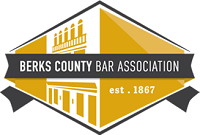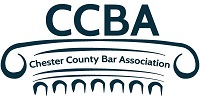Hanrahan v. Bakker, 151 A.3d 195 (Pa. Super. 2016), 19 MAP 2017 (Majority) (Dissent)
Issues
The Supreme Court granted Father’s allocatur petition on the following issues, noting that Issues (a) and (b) as set forth below would be argued, while issue (c) will be submitted on the briefs.
(a) Whether the Superior Court erred on an issue of first impression and substantial public importance by affirming the trial court’s misinterpretation of the Pennsylvania Supreme Court’s high income support guideline, Pa.R.C.P. 1910-16.3.1 (the “Guideline”)? The misinterpretation is that (a) the Pennsylvania Supreme Court, through Pa.R.C.P. 1910.16-3.1 and Ball v. Minnick, 648 A.2d 1192 (Pa. 1994), eliminated the statutory requirement of 23 Pa.C.S. § 4322(a) that high income child support awards be based on the reasonable needs of the children; and (b) reasonable needs is no longer the governing standard for, or even a relevant factor in, determining high income child support under the three-step process of Pa.R.C.P. 1910.16-3.1(a) and the factors in Rule 1910.16-5(b)[.]
(b) In holding that the trial court abused its discretion by granting a downward deviation of approximately 4% of the $2.5 million Father placed in an irrevocable non-grantor trust for the two children, did the Superior Court err by ruling, as a matter of first impression and substantial public importance, that a voluntary contribution to a trust can never be a relevant factor in determining child support?
(c) Did the Superior Court depart from accepted judicial practice, thereby justifying the exercise of the Pennsylvania Supreme Court’s supervisory authority, when the Superior Court made a premature and incorrect holding that the trial court abused its discretion in denying Mother an award of attorney[’]s fees where the trial judge and the Superior Court decided issues for and against both parties, both courts acknowledged that Father had never stopped paying child support, and the Superior Court remanded for a redetermination of support?
Background
Hanrahan (Father) filed petition for enforcement of a property settlement agreement and divorce decree with Bakker (Mother), who counter-petitioned. The Agreement between the parties required Father to pay Mother child support according to the Pennsylvania Child Support Guidelines (Guidelines). Father complied with the Agreement and paid support accordingly for three years, and each year the parties recalculated the amount of support according to the Guidelines. In 2012, Father informed Mother via letter that he no longer agreed to pay child support according to the Guidelines, and would instead pay monthly payments based on the previous year’s calculation. The Father also deposited $2,500,000 into an irrevocable non-grantor trust for the benefit of the two children, and paid approximately $70,000 in additional support towards the children’s private school tuition, camps, and activities.
The trial court issued order directing Father to pay Mother total of $52,289 per month in child support for one period and total of $59,206 per month for another period. The court further ordered Mother to set up separate Pennsylvania Uniform Transfers to Minors Act (PUTMA) accounts for the benefit of each child and to deposit $30,000 per month of child support monies received into accounts. The court’s order represented a downward deviation in consideration of father’s voluntary contribution to a trust for the benefit of the children, and a denial of Mother’s request for attorney’s fees. Mother and Father appealed.
On appeal Mother presented the following issues:
Whether the trial court erred and/or abused its discretion by: determining that [Father] was entitled to a downward deviation for support purposes as a result of his voluntary contributions to a trust for the benefit of the children in the amount of $2,500,000 in support year 2012; concluding that such voluntary contribution was a “relevant and appropriate” factor under Pa.R.C.P. 1910.16–5(b)(9); and, failing to explain how the deviation amount was determined; and
Whether the trial court erred and/or abused its discretion in denying [Mother] reimbursement of counsel fees pursuant to paragraph 35.e of the Property Settlement Agreement.
Slip Op., at 6-7.
Mother argued that the trial court abused its discretion by determining that Father’s voluntary contributions to a trust entitled him to a downward deviation for support purposes.
The Superior Court noted that the Child Support Guidelines’ three-step process involves consideration of additional factors to determine whether a downward or upward deviation is appropriate, relevantly:
(1) unusual needs and unusual fixed obligations;
(2) other support obligations of the parties;
(3) other income in the household;
(4) ages of the children;
(5) the relative assets and liabilities of the parties;
(6) medical expenses not covered by insurance;
(7) standard of living of the parties and their children;
* * *
(9) other relevant and appropriate factors, including the best interests of the child or children.
Id. at 13. In this case, the trial court considered Father’s voluntary contribution to a trust for the benefit of the children as a factor supporting a downward deviation. Comparing this case to Portugal v. Portugal, 798 A.2d 246 (Pa.Super. 2002), where the court previously held that a father’s voluntary contributions to 401(k) did not entitle him to a downward deviation, the Superior Court determined the trial court erred in considering the $2,500,000 trust fund when determining Father’s child support obligations and entitlement to a deviation.
The court then addressed the trial court’s denial of reimbursement for Mother’s attorney fees as provided in the Child Support Agreement:
It is the specific agreement and intent of the parties that a breaching or wrongdoing party shall bear the burden and obligation of any and all costs and expenses and counsel fees incurred by himself or herself as well as the other party to the extent the other party is successful in enforcing his or her rights under this Agreement.
Id. at 15.
The trial court based its denial of Mother’s request on its determination that neither party was successful in litigation; even though the court agreed the methodology Father used to calculate his child support obligation was wrong, “portions of both of the parties’ arguments were flawed.” Id. at 17.
The Superior Court disagreed, finding Father breached the Agreement when he stopped paying pursuant to the Guidelines as provided for in the agreement and was therefore the “breaching or wrongdoing party.” Mother, on the other hand, was seeking enforcement of the Agreement for support based on the Pennsylvania Guidelines, which the trial court granted, making Mother the successful party. Therefore, based on the Agreement, the trial court erred in denying Mother’s request for reimbursement of attorney’s fees.
The court moved on to Father’s issue:
Whether the trial court erred as a matter of law in holding that[:]
(a) the Pennsylvania Supreme Court, through Pa.R.C.P. 1910.16–3.1 and Ball v. Minnick, 538 Pa. 441, 648 A.2d 1192 (1994), eliminated the statutory requirement of § 4322(a) that high income child support awards be based on the reasonable needs of the children[;] and
(b) that reasonable needs is no longer the governing standard for, or even a relevant factor in, determining high income child support under the three-step process of Pa.R.C.P. 1910.16–3.1(a) and the factors in Rule 1910.16–5(b)?
Id. at 7.
While the court agreed that the previous standard applicable to high-income support cases based on reasonable needs of the children governed, the Superior Court disagreed that this remained the standard following the Supreme Court’s 2010 amendment of Pa.R.C.P. 1910.16–3.1 to the Guidelines. Specifically, the court emphasized the Explanatory Comment to 1910.16-3.1: “[n]ew Rule 1910.16–3.1 is intended to bring all child support cases under the guidelines and treat similarly situated parties similarly. Thus, high income child support cases no longer will be decided pursuant to Melzer v. Witsberger, 505 Pa. 462, 480 A.2d 991 (1984).”
Furthermore, Rule 1910.16 provides a list of factors to determine whether an upward or downward deviation in the child support is appropriate; however, “reasonable needs” is not one of the specific factors listed. Instead, as determined in Ball, “deviating from the Guidelines because the ‘basic needs of the children could be met by a payment of less than the guideline amount … is an impermissible basis for deviating from the guidelines.’” Slip Op., at 19 (quoting Ball, 648 A.2d at 1196). Additionally, the court noted that it previously declined to apply a reasonable needs analysis rather than apply the Guidelines in the 2004 case of Arbet v. Arbet, 863 A.2d 34. Therefore, based on 1910.16-3.1 and the holdings in Ball and Arbet, the Superior Court found the trial court in this case did not err in when it fashioned a child support award based on the Guidelines without engaging in a separate and discrete analysis of the children’s reasonable needs.
Judge Jenkins disagreed with the majority that the trial court abused its discretion by considering the $2,500,000.00 trust as a relevant factor in applying a downward deviation and in failing to award attorney fees to Mother.
While Judge Jenkins agreed that a separate reasonable needs analysis was not necessary, she noted the trial court’s discretion to award a downward deviation “as long as the court provides adequate reasons for the deviation.” Dissent, at 5. Judge Jenkins disagreed that this case was analogous to Portugal when Father did not create the trust in an attempt to exclude it from his income, but for the benefit of his children, and was not a beneficiary or trustee to the trust. Furthermore, the downward deviation was not based on the children’s assets, but rather “because Father chose to give his children a significant amount of his income to secure their futures, a gift clearly in their best interest.” Id. at 6.
The dissent additionally disagreed that Mother was entitled to reimbursement for attorney’s fees, agreeing with the trial court that neither party was successful in litigation. Further, Judge Jenkins disagreed that Father was in breach of the Agreement to entitle Mother to attorney’s fees:
Even if he was not entitled to the downward deviation he desired, Father did not breach the contract by contesting the extreme increase in his child support calculation. He continued to pay the amount of child support he had paid the previous year, and he contributed into a trust for the children an amount that far exceeded what the statute required him to pay.
Id. at 11.
(Above article courtesy of Paablog.com)
Contact Attorney Gray at (484) 769-5855 or online here to schedule an appointment.
Let her experience in and out of the courtroom work for you.




